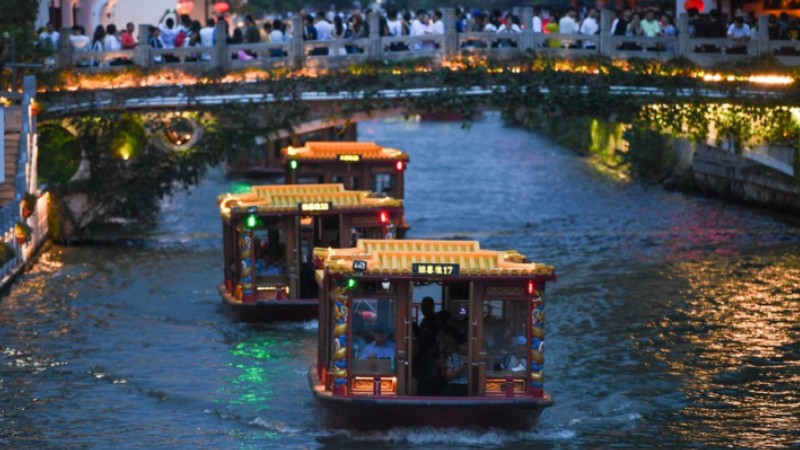Japan's water rush finally opens Pandora's box
Japanese Prime Minister Fumio Kishida announced on Tuesday that Japan will start releasing the nuclear-contaminated water that has been generated from the decommissioning of the tsunami-destroyed Fukushima nuclear power plant into the Pacific Ocean as early as Thursday. It is no coincidence that the announcement came two days after he returned home from the Camp David meeting with his US and ROK counterparts.
Both the Yoon Suk-yeol government and the Joe Biden administration have kept a studied yet condoning silence on the announcement that heralds Japan opening a Pandora's box. Not only are the long-term impacts on the marine environment unknown, but also the move will set a bad example for other countries which may treat the oceans as a free dumping ground.
The way the Japanese leader claimed that his government has "removed" the so-called last obstacle to the move also shows how Tokyo has overstretched itself. The outcome of the hours Kishida spent on Monday lobbying Masanobu Sakamoto, head of the National Federation of Fisheries Cooperatives, for the organization's support were later presented in a different way. While the latter made his organization's firm opposition to the plan unequivocally clear, Kishida told reporters that Sakamoto's response signaled "improved understanding", and his government brazenly hinted that the last hurdle to the release of the radioactive water had been overcome.
Sakamoto's "response" included his welcome to Kishida's pledge that the government will provide long-term subsidies and support to the fishing communities until the release ends. Does that really mean they have an "improved understanding" of the move? Do they really have the power to veto the plan that Tokyo has treated as a political and diplomatic undertaking rather than an environmental one from the very beginning?
The Kishida government has smeared China's concerns as "politicized" and regarded those previously expressed by the Republic of Korea, Australia and New Zealand and the Pacific island countries as "understandable but not necessary". It told the parties at home that are to be affected by the move: "The government is committed to taking full responsibility until the disposal of the treated water is completed."
But the question is whether that pledge will be binding on the future governments of Japan over the decades, and what about people in other countries that will be affected by the move. As Junichi Matsumoto, the Tokyo Electric Power Company executive in charge of the water release plan, told the media, the discharge is still only an initial step in a "daunting" decommissioning process that is expected to take decades.
It is the acquiescence of the International Atomic Energy Agency, as reflected by its partial report on the release plan, that has emboldened Tokyo to press ahead with the discharging of the water which many experts say is "ill-advised" and "premature".
Japan is making a shortsighted and selfish decision that the world is expected to pay the price for.
Photos
Related Stories
- Outcry grows as Japan unveils wastewater discharge plan
- S. Korean opposition party chief calls Japan's nuke wastewater dumping "act of terror"
- HK, Macao step up checks on safety of Japanese food
- Japan's decision to release nuclear-contaminated wastewater "disappointing": expert
- Macao to ban import of live, fresh food from certain areas of Japan over nuclear wastewater discharge
- S. Koreans condemn Japan's nuke wastewater dumping decision
- Japan's move to discharge wastewater 'irresponsible'
- Japan announces ocean discharge of Fukushima nuke wastewater amid protests
- S. Korea's opposition party denounces Japan's radioactive wastewater dumping plan
- Japan to start ocean discharge of Fukushima nuke wastewater Thursday
Copyright © 2023 People's Daily Online. All Rights Reserved.









